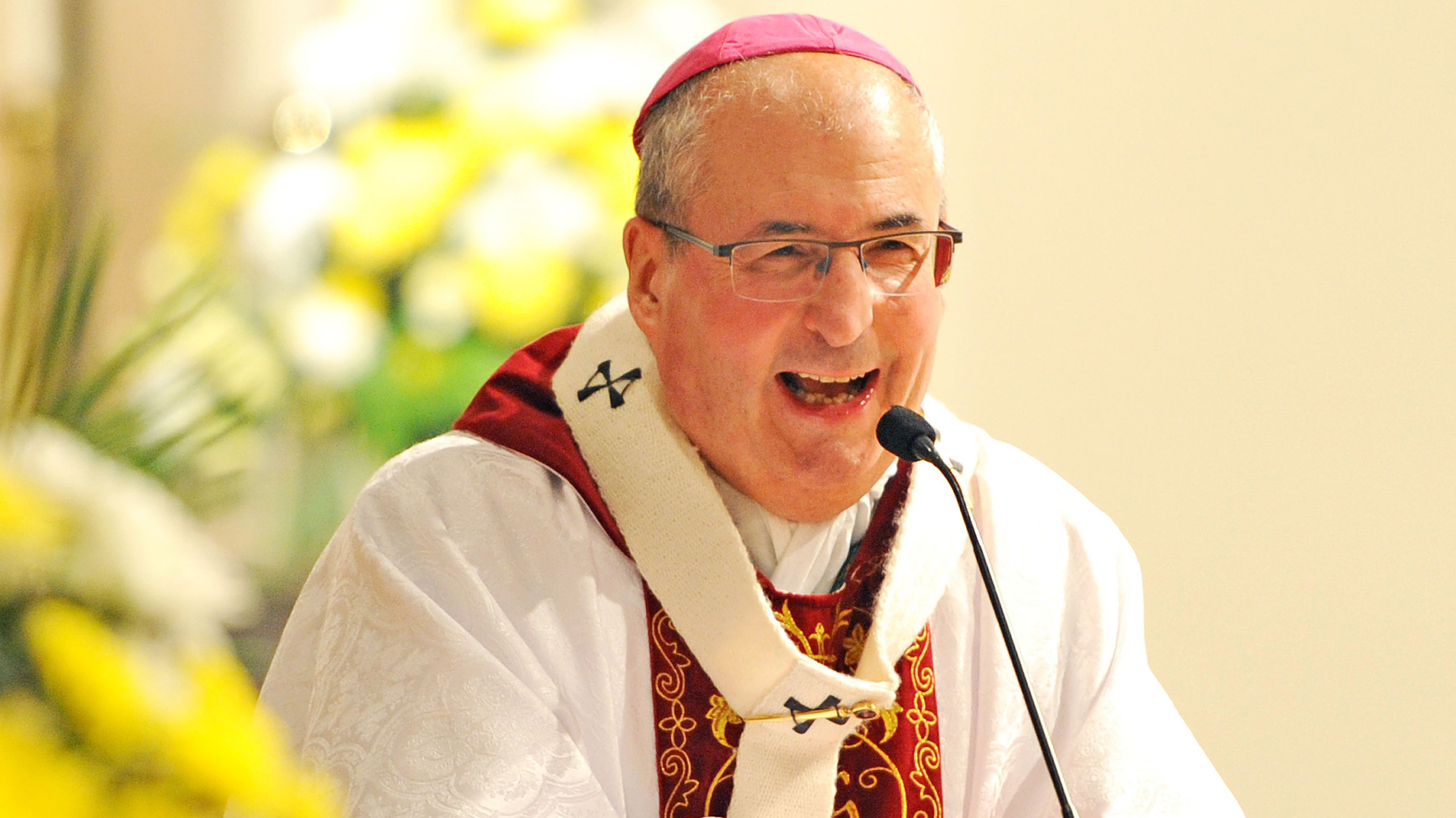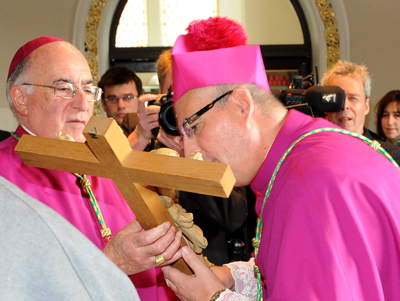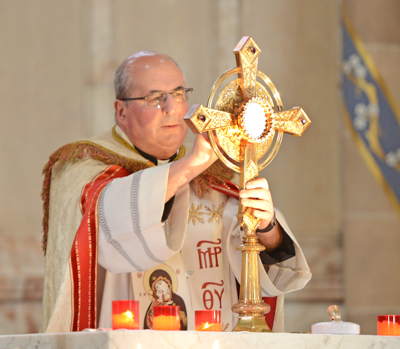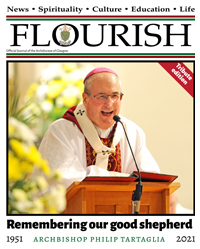
Official Journal of the Archdiocese of Glasgow
Archbishop Tartaglia Tribute Edition
Due to the coronavirus pandemic the Archbishop Tartaglia Tribute edition of Flourish is currently available in digital form only. You can read selected stories online on this page or download a PDF of the whole paper. A printed souvenir edition will be available when churches are open again.




